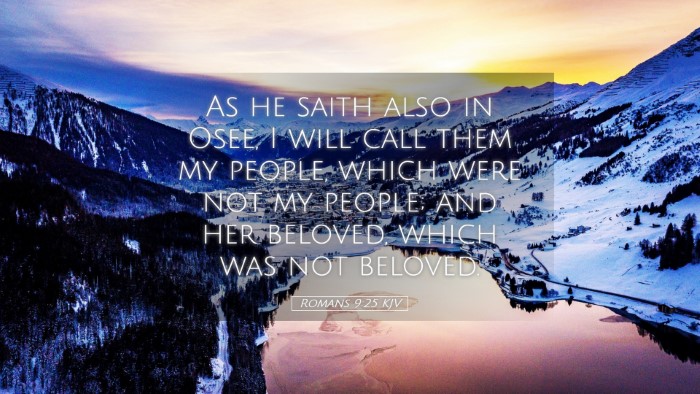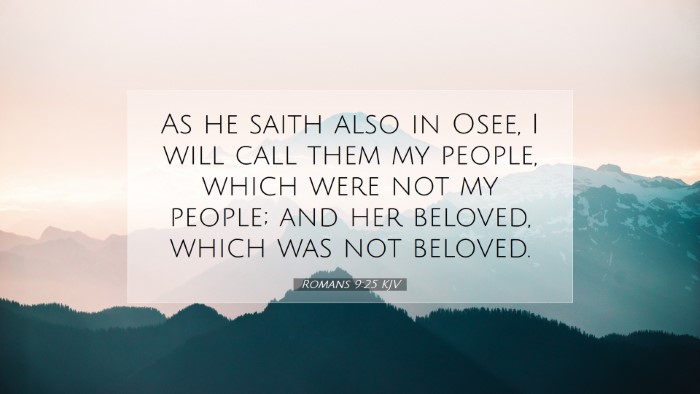Old Testament
Genesis Exodus Leviticus Numbers Deuteronomy Joshua Judges Ruth 1 Samuel 2 Samuel 1 Kings 2 Kings 1 Chronicles 2 Chronicles Ezra Nehemiah Esther Job Psalms Proverbs Ecclesiastes Song of Solomon Isaiah Jeremiah Lamentations Ezekiel Daniel Hosea Joel Amos Obadiah Jonah Micah Nahum Habakkuk Zephaniah Haggai Zechariah MalachiVerse
Romans 9:1 Romans 9:2 Romans 9:3 Romans 9:4 Romans 9:5 Romans 9:6 Romans 9:7 Romans 9:8 Romans 9:9 Romans 9:10 Romans 9:11 Romans 9:12 Romans 9:13 Romans 9:14 Romans 9:15 Romans 9:16 Romans 9:17 Romans 9:18 Romans 9:19 Romans 9:20 Romans 9:21 Romans 9:22 Romans 9:23 Romans 9:24 Romans 9:25 Romans 9:26 Romans 9:27 Romans 9:28 Romans 9:29 Romans 9:30 Romans 9:31 Romans 9:32 Romans 9:33

